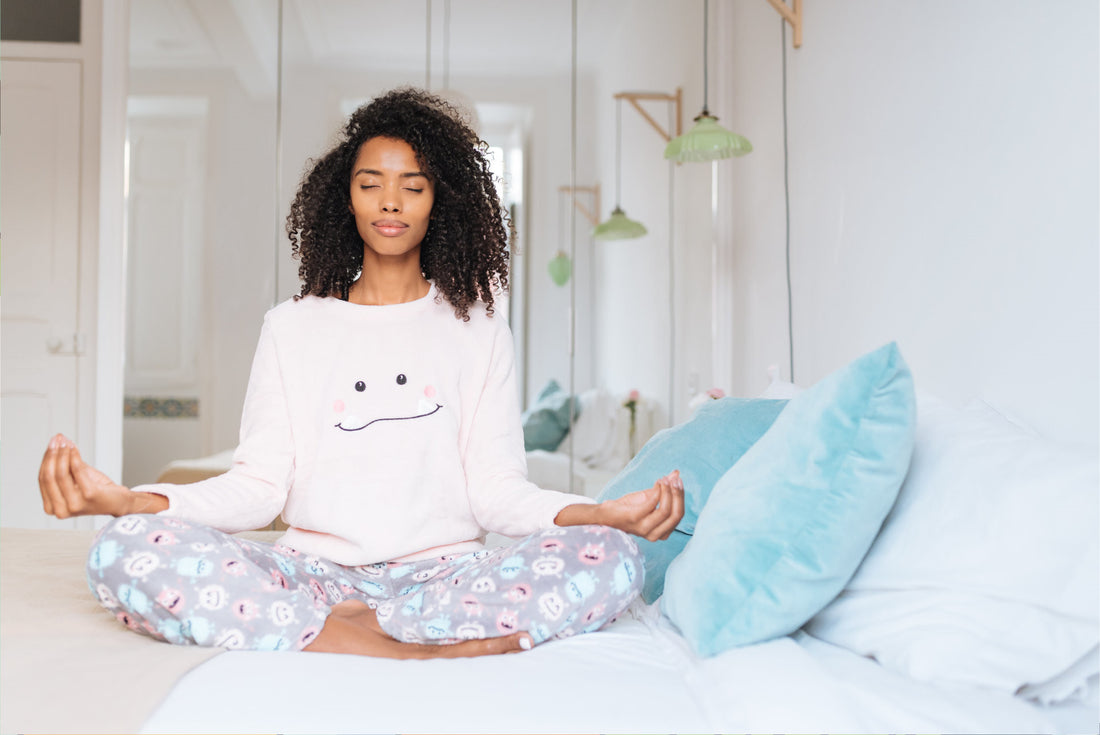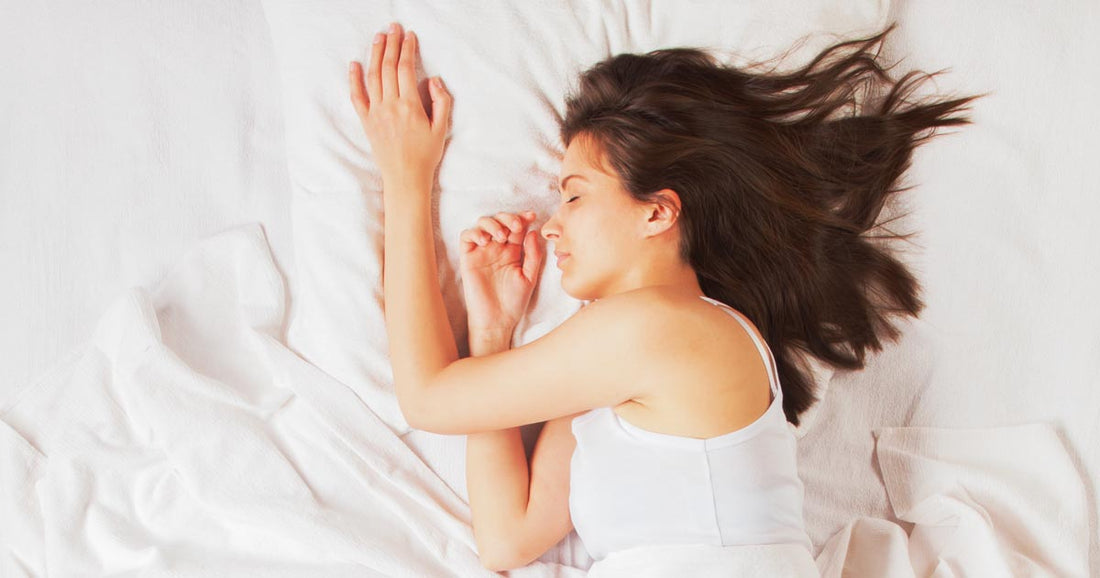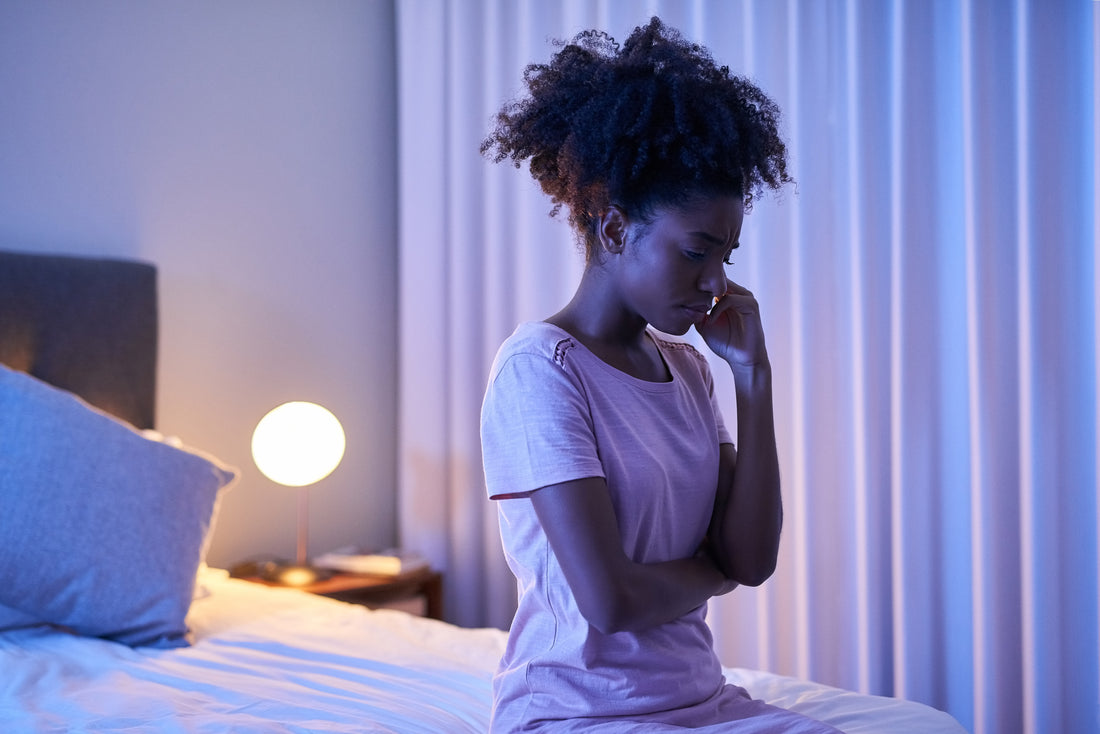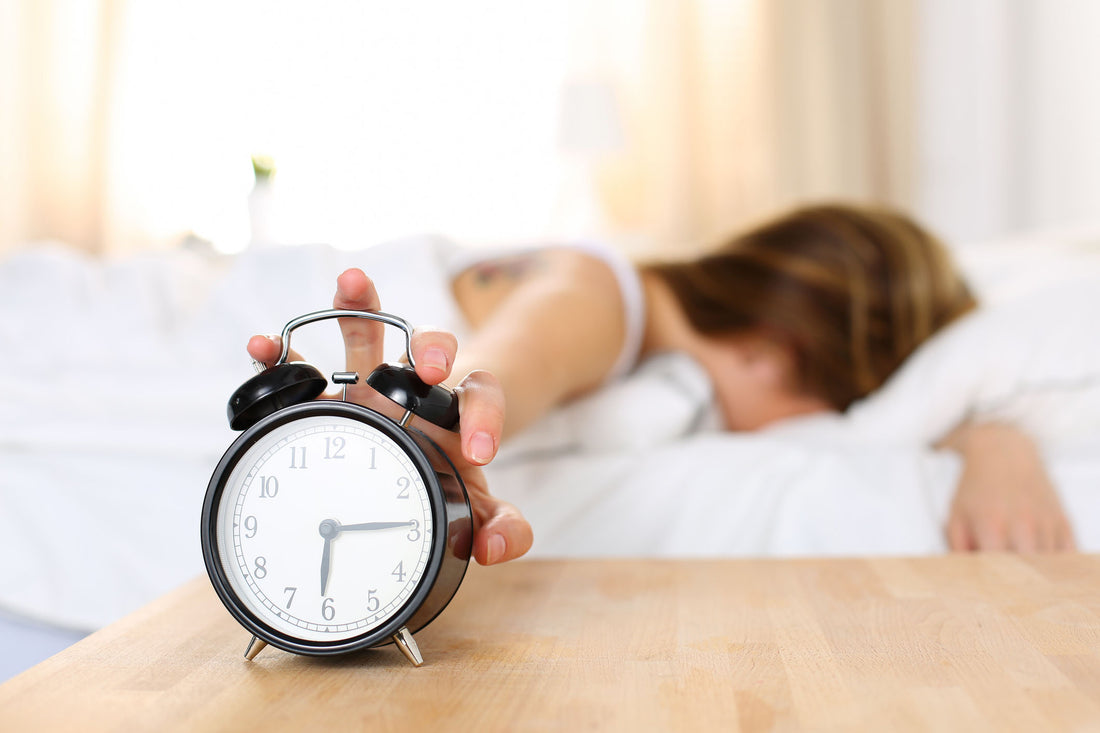News
The Link Between Sleep and Self-care
wp:paragraph The idea of self-care has gained a ton of popularity in recent years and has been great for people to prioritize their overall health and wellness in many ways. Self-care is different for everyone, whether through a relaxing bubble bath, reading your favourite book, binge-watching your favourite TV show, eating a delicious healthy meal. /wp:paragraph wp:paragraph Do you include sleep as a part of your self-care routine? Sleep is indeed one of the most important forms of self-care, as it has so many benefits that include boosting your immune system, improving your mood and helping with your heart function, just to name a few. Here are a few tips for incorporating sleep into your self care routine /wp:paragraph wp:list wp:list-item Build a solid sleep routine: Our internal clocks thrive on routine for proper sleep and a good routine will help you to take the time to properly wind down before bedtime and sleep better. Everyone’s routine will be different based on your individual needs, preferences and daily schedule but try to keep it consistent and realistic for you. /wp:list-item /wp:list wp:list wp:list-item Create a relaxing sleep environment: The bedroom is meant to be a place that will promote relaxation and calmness. If your sleeping environment causes you stress or anxiety in any way, then this will have an overall negative effect on your sleep. A few ways to help with this include keeping your bedroom dark, diffusing some relaxing essential oils and keeping the temperature on the cooler side. /wp:list-item /wp:list wp:list wp:list-item Limit technology: Many people like to spend time on their electronic devices before bedtime but avoid doing this! Not only can this cause unnecessary anxiety, but the light on your devices can interfere with your sleep cycle and potentially lead to insomnia and daytime fatigue. Try to power off all your devices at least a half hour before bedtime and find another activity that will help you wind down before bedtime, such as yoga or reading. /wp:list-item /wp:list wp:list wp:list-item Practice healthy daytime habits: Maintaining healthy diet and exercise habits are essential to a good night’s sleep, however there are a few extra things you can do to improve your sleep beyond that. Try and limit daytime naps and avoid all forms of caffeine at least 6-8 hours before bedtime. Also limit alcohol and other recreational drugs before bedtime such as tobacco and cannabis that have been known to interfere negatively with your sleep cycle. /wp:list-item /wp:list wp:paragraph Contact us for more information. /wp:paragraph
Learn moreWhich Sleep Position is Best For You?
wp:paragraph Everyone has a preferred position that they sleep in almost consistently whether it’s on your side, your back, or your front. The position you sleep in plays a big role in the quality of your sleep, and different positions have different benefits, so there is no one size fits all approach. Here are a few of the different sleeping positions and their benefits. /wp:paragraph wp:paragraph Side Sleeper: This is one of the most common sleep positions that offers many benefits including alleviating digestion and reducing snoring. Many side sleepers prefer to either lie with their legs straight, or to keep their legs curled up close to their body in the fetal position. As great as this position can be, it has been known to cause lower backpain and shoulder stiffness. Using a pillow to prop your hips up can help with this. /wp:paragraph wp:paragraph Back Sleeper (Supine Position): Although not as common, this is the sleep position with the most benefits for your health. Not only does good old gravity help to keep your body evenly aligned over your spine, but it can also alleviate pressure on your back and joints. The only downside is that it is known to be a more difficult position for those with snoring or sleep apnea. Make sure you are properly supported with a good mattress and pillow and make sure you get the proper treatment for any sleep problems. /wp:paragraph wp:paragraph Front Sleeper (Prone Position): Sleeping on your front is not as common, although it has been known to reduce snoring and sleep apnea. Sleeping on your front side has been known to not only cause neck and back pain, as well cause strain to your muscles and joints. To alleviate this problem, make sure you invest in a good pillow and mattress. /wp:paragraph wp:paragraph Contact us for more information. /wp:paragraph
Learn moreCommon Sleep Problems for the Spring
wp:paragraph March 18th is World Sleep Day, and with spring officially starting very soon, we are looking at a few common sleep problems that many people experience at this time of year. Spring comes with not only a change in the weather, but you may also notice a few unwanted changes in your sleeping patterns. Here are four common sleep tips for the spring problems that a lot of people deal with it. /wp:paragraph wp:paragraph Allergies: Yes, springtime allergies are extremely common with the warmer weather, so you may be dealing with symptoms such as sneezing and congestion that are present while you are trying to sleep. This can be extremely unpleasant and can keep you up at night, so be sure to take advantage of any over the counter medications that may alleviate your symptoms and speak to your doctor if it gets worse. /wp:paragraph wp:paragraph Extended sunlight: Now that the days are longer and the sun is setting later, you may find that your internal clock has been thrown off a bit. Our bodies tend to naturally wind down when it is darker so your bedtime may just be a bit off. Make sure you get in lots of sunlight during the daytime and be sure to take the time to properly wind down at night with a solid bedtime routine. /wp:paragraph wp:paragraph External noise: With the weather nicer, you may find yourself kept up by not only birds chirping away, but other factors, such as noisy construction projects in your area may be keeping you up. If you cannot sleep through it, try using earplugs and look at options to keep your windows as soundproof as possible. /wp:paragraph wp:paragraph Increase in activities: Between spending more time outdoors, an increase in social gatherings and participating in sports and other activities, your bedtimes may not be as consistent in the spring as they normally would be. While there is nothing wrong with deviating from your routine every now and then, make sure you get back on track, and avoid high intensity exercise before bedtime. /wp:paragraph wp:paragraph Contact us for more information. /wp:paragraph
Learn moreGood Night’s Sleep After a Night of Drinking
wp:paragraph With St. Patrick’s Day coming up and the weather getting warmer, you may be thinking about going out for a few drinks with other people. /wp:paragraph wp:paragraph As fun as this sounds, be careful! Drinking too much can have some pretty negative consequences on your sleep, not to mention the unpleasant “hangover” symptoms you may feel the following day. Here are four tips to ensure that a night out has very little consequences to your sleep. /wp:paragraph wp:paragraph Pace yourself: One of the worst mistakes people tend to make when drinking is having too much at once, also known as “binge drinking.” Not only is this a bad idea, but too much alcohol at one time can have terrible effects on your REM sleep, which is essential for the deep sleep you experience to feel well rested. To avoid this, don’t drink too fast and stick to one drink at a time. /wp:paragraph wp:paragraph Stay hydrated: Alcohol is known to make you feel dehydrated, which not only keeps you up at night, but can make you feel miserable the next morning. If you are going out drinking, be sure to drink lots of water throughout the evening and make sure you drink water before you go to bed. /wp:paragraph wp:paragraph Stop early: If you have obligations in the morning, such as work, drinking into the wee hours of the morning may not be the smartest idea. Try not to let a night out disrupt your bedtime routine. Experts do not recommend drinking too close to bedtime, so maybe plan to go out a little earlier in the evening so you can still have a good time without neglecting your sleep. /wp:paragraph wp:paragraph Be smart: When it comes to drinking, everyone has their own limits, and depending on your age, gender, and body type, one drink tends to affect people very differently. If you know you need to call it quits after drinking a certain amount then make sure you stick to that, and have your loved ones hold you accountable. /wp:paragraph wp:paragraph Contact us for more information. /wp:paragraph
Learn moreTips for Surviving “Covid-somnia”
wp:paragraph We are now officially two years into the Covid-19 pandemic that has changed so much about our lives in many ways. Maybe you or someone you know battled the Covid-19 virus, maybe your job has been affected, maybe you have had to change your travel plans and maybe you have not been able to see friends or family through all this. /wp:paragraph wp:paragraph One of the biggest changes that many people have experienced in the past two years is with their sleep, and “Covid-somnia” has become extremely common in the past few years. While things are slowly starting to look up with the decline in cases, if you are suffering from insomnia more often because of the pandemic, there are ways that you can turn your sleep around. /wp:paragraph wp:paragraph Here are four tips to survive Covid somnia: /wp:paragraph wp:list {"ordered":true} wp:list-item Be mindful of media consumption: All of the events happening in the world can certainly be distressing. As a result, watching, reading or listening to the news too much can induce anxiety and can interfere with your sleep as a result. While there is nothing wrong with wanting to stay up to date with all that is happening in the world, try to set limits on media consumption and try to avoid it too close to bedtime. /wp:list-item wp:list-item Find a relaxing activity to do: This can help you to unwind before bedtime and sleep better at night. This includes reading, meditation or taking a warm bath or shower. Starting this at least 30 minutes before bedtime can be very beneficial in getting a good night’s sleep. /wp:list-item wp:list-item Be careful with medications that promote sleep: While taking melatonin, or another over the counter medication can be a temporary solution to insomnia, experts recommend that you do not make this a regular thing. If your insomnia becomes chronic, then it is time to speak to a doctor for additional help. /wp:list-item wp:list-item Stick to a routine: Our internal clocks thrive on a consistent routine, especially when it comes to bedtime, as it is helpful to have some normalcy in these uncertain times. Make sure you get at least 7-9 hours of sleep each night and that you go to bed and wake up around the same time each day. /wp:list-item /wp:list wp:paragraph Contact us for more information. /wp:paragraph
Learn moreSpring Forward your Sleep
wp:paragraph In just a few days, the clocks will be moving forward by one hour for the “spring forward” time change. Unlike the fall, where an hour is gained, the spring time change tends to be a little more difficult on many people. Since you lose an hour, your sleep schedule and routine may be thrown off a bit, leaving you feeling a little “off” for a few days afterwards. /wp:paragraph wp:paragraph Luckily there are a few ways to make this transition a smooth one. Here are a few tips for adjusting to the spring time change. /wp:paragraph wp:paragraph Transition gradually /wp:paragraph wp:paragraph Starting a few days beforehand, try to gradually move your bedtime earlier by just 15 minutes each night. This also means that you may be waking up a little earlier, however you will still be getting the same amount of sleep as normal. This will not only help you to feel well rested but will also help to lessen the effects of the time change once it happens. /wp:paragraph wp:paragraph Practice good sleep habits /wp:paragraph wp:paragraph Even with a time change, good sleep habits are important for a well-rested night of sleep. Don’t deviate from your normal bedtime routine and avoid heavy meals and stimulating substances before bedtime (including caffeine, alcohol and tobacco). It will also help to get some exercise in during the daytime, and to try and get as much sunlight as possible during the day to help with your internal clock. /wp:paragraph wp:paragraph Give yourself some grace /wp:paragraph wp:paragraph This transition does not come easily to everyone. If you are feeling affected by this in a negative way, know that you are not alone! If a short nap during the day will help you get back on track with your sleep schedule, this is not a problem as long as you do not make this a regular habit. Also, if you are experiencing insomnia because of this, try not to “sleep it off.” Rather than lying awake for an extended period, get out of bed and do a relaxing activity (such as reading) until you start to feel sleepy. /wp:paragraph wp:paragraph Contact us for more information. /wp:paragraph
Learn moreSleep Differences in Women
wp:paragraph In honour of International Women’s Day on March 8th, we will be looking at sleep differences between women and men. While it may be easy to think that something like sleep affects both genders the same way, this is not necessarily the case. Here are a few of the major differences in sleep habits among women. /wp:paragraph wp:paragraph Amount of sleep required /wp:paragraph wp:paragraph The average adult requires around 7-9 hours of sleep each night, though women tend to do better with a little more than that. What you may not know is that women have more trouble fulfilling this requirement more than men do. This is often because of a few minor differences in both the REM sleep cycle and the circadian rhythm (AKA your internal clock) for women. While the differences are very subtle, it can still add up and affect a woman’s sleep cycle significantly more. /wp:paragraph wp:paragraph Insomnia and other sleep disorders /wp:paragraph wp:paragraph This includes sleep apnea, and chronic insomnia just to name a few. Did you know that women are 40% more likely than men to experience insomnia in their lifetime? Insomnia in women also comes with more symptoms than in men. And let’s not forget about sleep apnea, while it is diagnosed in men more often, women can still get it too and sadly, a lot of sleep apnea cases in women go mis-diagnosed because of how common it is in men. /wp:paragraph wp:paragraph Hormones /wp:paragraph wp:paragraph One of the biggest factors of sleep differences amongst the genders! A shift in hormone production throughout a woman’s life can create sleeping issues. This starts as early as puberty, once a woman starts menstruating. A drop in hormone production before a woman’s menstrual cycle can cause physical and emotional effects, which include a lack of sleep. Pregnancy also brings a significant change in hormone production that can interfere with a woman’s sleep cycle not only throughout pregnancy, but in the post-partum stage as well. Finally, menopause has been known to create many sleep disturbances in women, thanks to many symptoms such as hot flashes and night sweats. /wp:paragraph wp:paragraph Contact us for more information. /wp:paragraph
Learn moreWhat is Sleep Hygiene?
wp:paragraph You may know hygiene as a term that refers to maintaining good overall health, whether through brushing your teeth daily or taking a shower to keep yourself clean. /wp:paragraph wp:paragraph Sleep hygiene is basically the same idea. It refers to good habits to help you get a good night’s sleep, which is extremely important seeing how vital sleep is to your overall health. /wp:paragraph wp:paragraph Bad sleep hygiene can occur when you are having trouble falling asleep, you don’t stay asleep through the night, you are awoken frequently by external factors, or if you are feeling excessively sleepy during the daytime. Of course, there will be days where your sleep hygiene may get off track for a night or more but staying as consistent as possible is important for proper sleep hygiene! /wp:paragraph wp:paragraph Here are four tips to maintaining proper sleep hygiene: /wp:paragraph wp:paragraph Set a proper sleep schedule /wp:paragraph wp:paragraph Decide on a bedtime that works best for you and gives you the 7-9 hours of sleep you need. Make sure you stick to this as much as possible and try and keep your wake-up times consistent as well. Also, try and avoid daytime napping, if possible, as this can interfere with your sleep routine. /wp:paragraph wp:paragraph Follow a good bedtime routine /wp:paragraph wp:paragraph Everyone has their own preferences when it comes to bedtime routines but in general, make sure your routine is one that will help you to relax and wind down. Dim your bedroom lights, put all your technology devices away at least 30 minutes before bedtime and do a relaxing activity that calms you down. /wp:paragraph wp:paragraph Practice healthy habits in the daytime /wp:paragraph wp:paragraph This is one of the key pieces for getting a good night’s sleep. Maintain a healthy diet that includes lots of fruits and vegetables, stay hydrated, and try to get in around 30 minutes of exercise during the daytime. Also, try to avoid alcohol, caffeine, and nicotine close to bedtime. /wp:paragraph wp:paragraph Create the perfect sleep environment in your bedroom /wp:paragraph wp:paragraph Make sure your bedroom is a place that promotes good sleep! Make sure your bed has a comfortable mattress, pillows, and bedding, and use blackout curtains to block out any outside light that may disturb your sleep. Keep the bedroom at a comfortable temperature and take advantage of earplugs or a white noise machine if you are sensitive to external noise. /wp:paragraph
Learn moreIs “Sleeping In” a Bad Thing?
wp:paragraph Many people spend the work week anticipating the extra sleep they will get on the weekend (or whenever their days off may fall). It can be a truly relaxing feeling where you don’t have to wake up to an alarm the next day. But can this be bad for your sleep? /wp:paragraph wp:paragraph While it is generally recommended by sleep experts that you go to sleep and wake up at the same time each day, there is really nothing wrong with sleeping a little longer every now and then, as long as you are smart about it. /wp:paragraph wp:paragraph How do you sleep on work nights? /wp:paragraph wp:paragraph Many people who sleep in on their days off may not realize that the extra few hours of sleep they are getting is actually to make up for the poor sleep they are probably getting on the other nights of the week. While an hour or two of extra sleep on your weekends is usually fine, sleeping in for as much as several hours is not necessarily a good thing. /wp:paragraph wp:paragraph Pay attention to how you are sleeping on work nights. Are you staying up late when you have to wake up early? Do you feel tired during the daytime? If so then you may need to make a few adjustments to your bedtime during your work week. Your body is probably desperate to catch up on some much-needed sleep once the weekend rolls around. /wp:paragraph wp:paragraph Tips for maintaining a consistent sleep /wp:paragraph wp:paragraph Make sure you are getting enough sleep every night, even on work nights, so that you are well rested, alert and ready for the day ahead. The average adult requires around 7-9 hours of sleep per night so if you are getting less than this, consider slowly moving your bedtime up a little earlier. Of course, life will happen every now and then, and there may be a few unplanned late nights that may interrupt your sleep cycle but it is important to get back on track! /wp:paragraph wp:paragraph All that to say, there is nothing wrong with sleeping for an extra hour or two if you don’t have to wake up early and enjoy that extra sleep! Just be smart about it and make sure your sleep is not suffering on the other nights of the week. /wp:paragraph
Learn more








